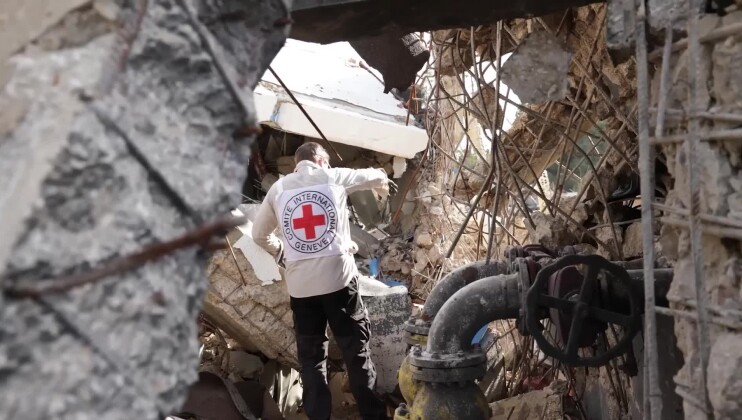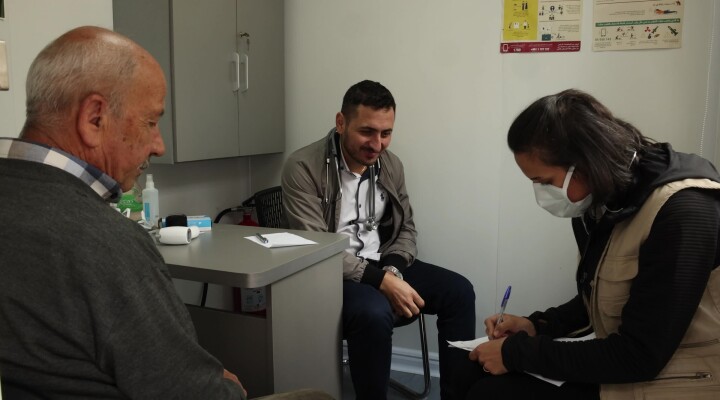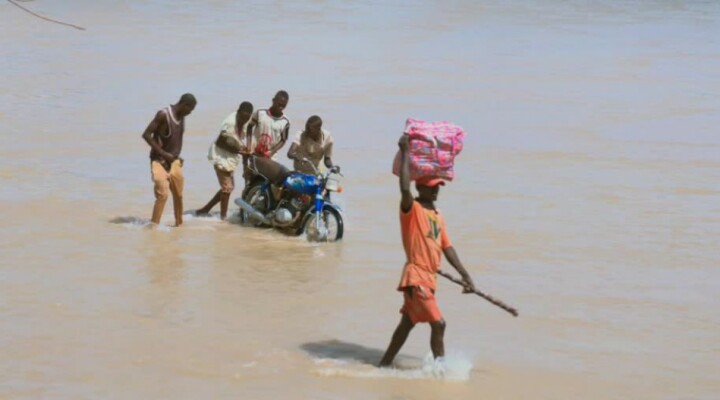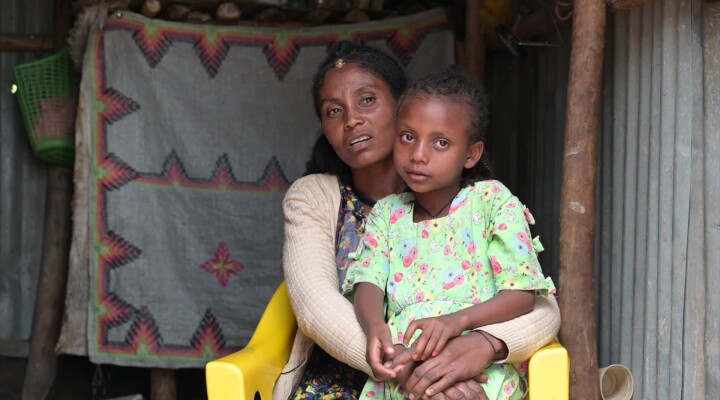Israel and the Occupied Territories: ICRC convoy comes under fire while delivering medical supplies; surgeon says he has no more gauze for burns
The health-care system in Gaza is under severe strain. A convoy of seven vehicles from the International Committee of the Red Cross delivering medical supplies to health facilities came under fire on Tuesday, while an ICRC surgeon reports he has no more Vaseline gauze to treat patients with severe burns.
The convoy was carrying lifesaving medical supplies to health facilities, including to Al Quds hospital of the Palestinian Red Crescent Society, when it was hit. Two trucks were damaged, and a driver was lightly wounded.
“The ICRC due to serious security challenges on the road, which included one of our trucks being impacted, and one of our drivers being injured, was not able to go ahead with the plan as intended. We were however still able to delivery the majority of assistance we had with us to one of the major hospitals, Al Shifa. However, these are not conditions under which humanitarians can work and meet the urgently required needs of the civilian population,” said William Schomburg, the head of the ICRC delegation in Gaza.
Tom Potokar, ICRC’s chief surgeon who is now working in the European Gaza Hospital, said: “In the last week I’ve had to tell a father that his child has non-survivable burn injuries. We’ve had to treat young patients pulled out of the rubble after 48 hours.
Pototka added: “We are really running out of things now, dressings particularly for the burns. We are running out of anaesthetic and analgesic drugs. The staff, both ourselves and the local staff here are getting very worn out. The living conditions are very basic. There’s not much food. … But of course, it’s nothing compared to what the people here in Gaza are suffering at this moment.”
For further information, please contact:
SHOTLIST
Length: 02:27
Copyright: ICRC access all
On Screen Credit:
Location: Gaza
Date: 7-11-2023
|
00:00 – 00: 23
|
Southern Gaza - warehouse - ICRC loads trucks with medical supplies.
|
|
|
00:23 –00:29 |
ICRC Trucks drive north to deliver supplies to hospital
|
|
|
00 :29- 00 :48 |
ICRC trucks stopped after coming under fire
|
|
|
00 :48- 1 :27 |
ICRC team accompanies six ambulances back to southern Gaza
|
|
|
1 :27- 2 :38 |
Soundbite William SCHOMBURG, ICRC Head of Gaza sub-delegation
|
For a second day in the row, the International Committee of the Red Cross, the ICRC was able to escort six ambulances out of Gaza City and to the Rafah crossing Egypt where I'm currently stood. We also entered Gaza with several trucks of vitally needed medical assistance that we planned to donate to different facilities that are in desperate need of medical items, including the Al Quds Hospital which is managed by the Palestinian Red Crescent. Our main partner the ICRC, due to serious security challenges on the road which included one of our trucks being impacted and with one of our drivers being injured was not able to go ahead with the plan as we intended. We were however still able to deliver the majority of the systems that we had with us to one of the major hospitals within Gaza City, Al Shifa. However, these are not conditions under which humanitarians can work and meet the urgently required needs of the civilian population. |
|
2:38- 3:00 |
Residents of northern Gaza are on their way to southern Gaza to escape military actions in the north |
|
|
03:00 – 04:14
|
Soundbite - Dr. Tom Potokar - ICRC chief surgeon |
So today I just want to talk more about the reality of the situation of being here in this war zone. For the last ten days or so in the last week, I've had to tell a father that his child has nonsurvivable burn injuries. I've had to treat with the team patients, young children that have been pulled out of the rubble after 48 hours. Today we had a patient in theatre for further surgery, extensive surgery. She's already had and had lost two children in the attack that wounded her. We're still getting patients every day. There's very significant injuries that are going to take a long time to heal. We're really running out of things now, dressings particularly for the burns. We're running out of anesthetic and analgesic drugs. The staff, both ourselves and the local staff here, are getting very worn out. The living conditions are very basic. There's not much food, electricity, cuts in the evening, difficult and irregular communications. But of course, this is nothing compared to what the people here in Gaza are for him at this moment.
|
|
4:14 - 05:27 |
Various shots of the ICRC surgical team working in the European Gaza Hospital (EGH)- Gaza
|
|
Ends
For further information, please contact:
Jessica Moussan, ICRC Dubai, tel +971 504 254 091 jmoussan@icrc.org
Imene Trabelsi, ICRC Lebanon, tel. +961 313 83 53, itrabelsi@icrc.org
Alaa Nayel, ICRC Kuwait, tel: +965 966 73 614, anayel@icrc.org
Crystal Wells, ICRC Geneva, tel: +41 79 642 80 56, cwells@icrc.org
Fatima Sator, ICRC Geneva, tel: +41 79 848 4908, fsator@icrc.org
Christoph Hanger, ICRC Geneva, tel: +41 79 731 04 03, changer@icrc.org
Shuangfeng Zhang, ICRC Beijing, tel: +86 138 100 355 22, szhang@icrc.org
Matthew Morris, ICRC London, +44 7753 809 471, mmorris@icrc.org
Frédéric Joli, ICRC Paris, +33 6 20 49 46 30, fjoli@icrc.org
Elizabeth Shaw, ICRC Washington, +1 202 361 1566, eshaw@icrc.org
The International Committee of the Red Cross (ICRC) is a neutral, impartial and independent organization with an exclusively humanitarian mandate that stems from the Geneva Conventions of 1949. It helps people around the world affected by armed conflict and other violence, doing everything it can to protect their lives and dignity and to relieve their suffering, often alongside i



